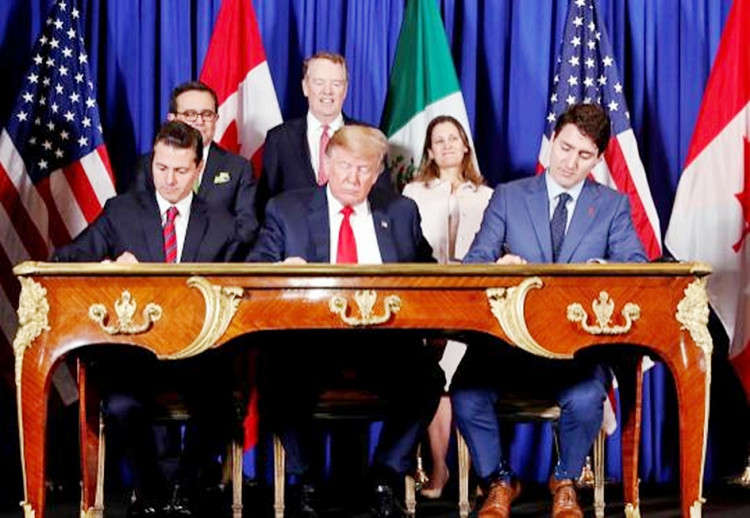The contentious United States-Mexico-Canada Agreement (USMCA) just became harder to sell to the U.S. Congress that must ratify it after a new federal report estimates it will eventually lead to job losses in the U.S. car industry as well as more expensive cars.
The U.S. International Trade Commission (USITC) estimates USMCA will only modestly boost the U.S. economy but stands to reduce U.S. vehicle production. The finding is a big slap to president Donald Trump, who keeps bragging the deal will boost the U.S. auto industry employment.
During his State of the Union address in February, Trump said the deal will "ensure that more cars are proudly stamped with our four beautiful words, 'Made in the USA.'" The U.S. motor vehicle industry is a key focus of USMCA for the Trump administration.
The USITC report projects U.S. vehicle production to decline while U.S. vehicle sales will fall by 140,000 units because of higher prices. This loss will be equivalent to 1.25 percent of 2017 sales, said USITC. On the other hand, USMCA will create 30,000 jobs for companies that make car parts and engines.
The report also determined that 1,500 U.S. vehicle manufacturing jobs will be lost while the price of new U.S. vehicles might rise from 0.4 percent for pickup trucks to 1.6 percent for small cars.
As a result, some U.S. car makers could decide "not to offer vehicles that would be too expensive to bring into compliance, which would ultimately decrease consumer choice," said the USITC report.
The sobering report will add ammunition to opponents of the deal, who are chiefly Democrats that complain USMCA makes only cosmetic changes to the existing North America Free Trade Agreement (NAFTA) in force for over two decades.
Trump has repeatedly attacked NAFTA for ripping-off the U.S. and has touted USMCA as a "better deal." Expert analysis of USMCA, however, shows USMCA "is essentially NAFTA 2.0, with a few updates."
USMCA has changed NAFTA a bit to include changes for automakers, labor, and environmental standards, intellectual property protections, and digital trade provisions. Other than these, there are no major changes to warrant boasting about.
Leaders of the U.S., Canada, and Mexico approved USMCA in 2018, but this new deal must still be approved by the U.S. Congress now half Democrat.
On the upside, USITC said USMCA could increase U.S. real gross domestic product by 0.35 percent, or $68.5 billion, annually and add 176,000 U.S. jobs while increasing U.S. exports. These good things, however, will only occur during year six of the deal, which means it's been fully implemented at this time.






